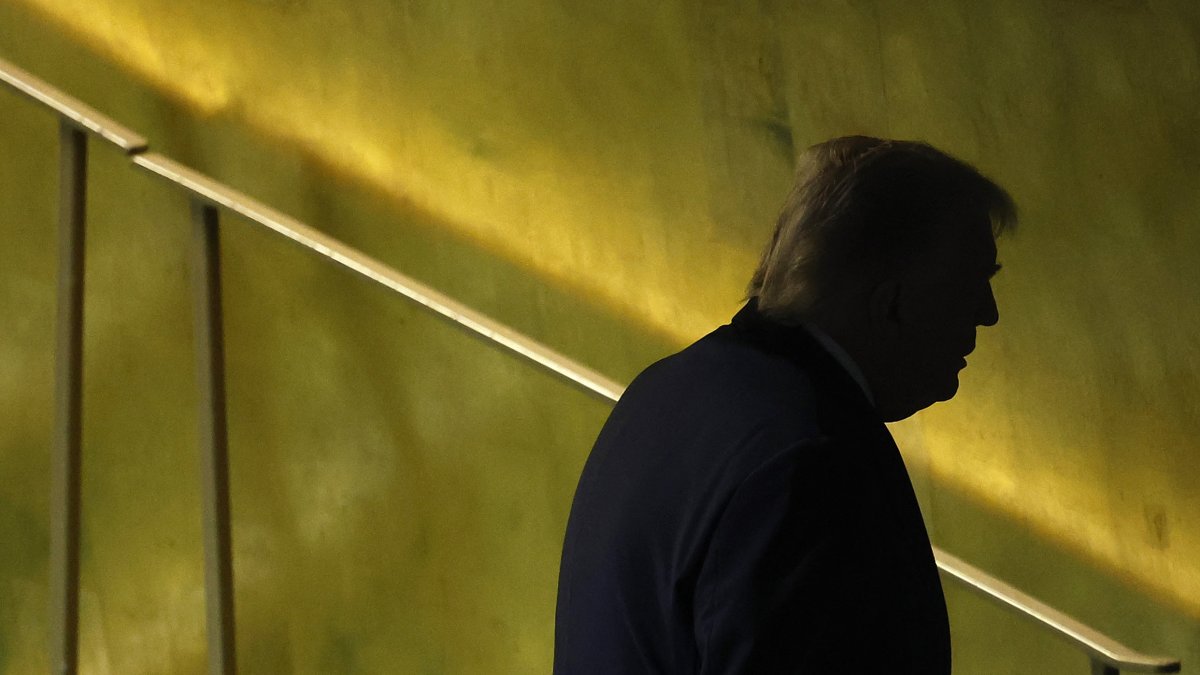At the 2025 U.N. General Assembly, Donald Trump looked less like a steward of a rules-based order than more like a salesman with a global microphone. His 57-minute speech went off-script after the teleprompter froze. A U.N. address by a U.S. president is meant to be sober and steady, a moment for a world leader to chart a course. Instead, Trump performed like a boss, berating the staff, insisting only he had the answers.
Drones over Europe
While the General Assembly debated Gaza, Trump told world leaders their countries were “going to hell due to uncontrolled migration,” dismissed climate policy as “the greatest con job in the world,” and warned that recognizing Palestine would “reward Hamas’s atrocities.” Meanwhile, Russian drones and jets were testing NATO’s skies, from 19 incursions over Poland on Sept. 10–11, to a Geran-2 breaching Romania two days later, and three MiG-31s lingering 12 minutes over Estonia on Sept. 19. NATO warned that “Russia should be in no doubt: Allies will use all necessary military and non-military tools to defend ourselves,” while Estonia’s Foreign Minister Margus Tsahkna called the overflight “unprecedentedly brazen.”
By late September, drone swarms shut Copenhagen Airport and triggered a nationwide flight ban, prompting NATO to roll out Operation Eastern Sentry as Sweden rushed counter-UAS systems and a German frigate docked in support. Danish Prime Minister Mette Frederiksen called it “a likely hybrid attack” and “the most serious attack to date” on Danish infrastructure. At the beginning of October, Munich Airport halted and then resumed flights after multiple drone sightings, while German Chancellor Friedrich Merz said Berlin assumes Russia is behind the incursions.
Beyond statements, money is moving. On Sept. 29, grid operators in Poland, Lithuania, Latvia and Estonia announced a $415 million plan for bunkers, anti-drone nets and hardened substations. Poland will hike its bank tax to 30% by 2026 to fund defence, while Romania partners with Ukraine on drone production and EU capitals advance a “drone wall” plan after recent airspace breaches. Through Readiness 2030, the EU’s SAFE programme now offers $165 billion in defence loans. Nineteen states have subscribed; Poland alone takes $48 billion. The goal is to mobilize $875 billion in total spending and steer procurement toward European-made systems, a self-reliant shield inside NATO’s tent.
That same credibility gap doesn’t just invite Moscow’s drones; it leaves Washington standing alone on Gaza, where even close allies have shrugged off U.S. pressure and chosen to back a two-state solution.
U.S. isolation on Gaza
Trump’s claim at the U.N. that recognition “rewards Hamas” was overtaken by events. On Sept. 21, Britain, Canada, Australia and Portugal recognized Palestine; the next two days, France, Luxembourg, Malta, Monaco, Andorra (and Belgium, conditionally) joined. French President Emmanuel Macron, seated beside Trump, said recognition “does not ignore Oct.7” but is necessary to “force a political track.” More than 150 member states now recognize the Palestinian state. The U.S. narrative is now isolated, not influential, and it has already vetoed Security Council ceasefire resolutions multiple times and cut funding to U.N. agencies, including the United Nations Relief and Works Agency (UNRWA), further eroding moral standing and influence.
That same isolation in Gaza anchored Trump’s 20-point “solution,” unveiled Sept. 29 and noted cautiously by all. It promised a ceasefire, mass prisoner swaps, amnesty for disarmed Hamas fighters, a foreign-run “Board of Peace” chaired by Trump, and a special zone to build “miracle cities.” Aid would flow, Israeli forces would withdraw in stages, and an international mission would police Gaza until a “reformed” Palestinian Authority takes over. But Israeli Prime Minister Benjamin Netanyahu had already rejected Palestinian Authority control even in his defiant U.N. speech, and Trump hinted that refusal means renewed strikes. Talks opened Oct. 6 in Sharm el-Sheikh, with Hamas demanding guarantees on Israeli pullback and prisoner releases while Israeli airstrikes continued overhead. From Gaza’s suspended faith to Europe’s emergency budgets, every actor is now planning for a world where Washington’s word no longer guarantees safety.
History shows what happens when guarantees collapse: nations stop waiting for speeches and start building walls. This is not 1930, but the pattern rhymes. Today, from Poland’s 30% defense tax to the EU’s drone walls and hardened grids, Europe’s buildup is driven by doubt, not choice. Berlin’s Friedrich Merz warned of a “less stable America era” and urged Europe to defend itself. And beyond Europe, in Gaza, the cease-fire Trump promises feels more like a threat than a plan. The world is watching to see the next step. Trumping may go on, but the world is finally calling the bluff.

The Daily Sabah Newsletter
Keep up to date with what’s happening in Turkey,
it’s region and the world.
SIGN ME UP
You can unsubscribe at any time. By signing up you are agreeing to our Terms of Use and Privacy Policy.
This site is protected by reCAPTCHA and the Google Privacy Policy and Terms of Service apply.
